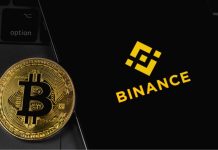A blockchain payments trial jointly launched by a trio of banks led by JPMorgan has roped in 75 new banks globally for seamless and faster interbank settlements.
First deployed by JPMorgan in October 2017, the Interbank Information Network began as a blockchain experiment to minimize the participants and friction typically involved in a global payments transaction. The blockchain is developed using Quorum, an Ethereum-based private blockchain developed by JPMorgan in partnership with development studio EthLab.
As CCN reported at the time, JPMorgan’s blockchain foray took shape nearly to the day two years ago in 2016. The largest bank in the United States quit banking-centric blockchain consortium R3 the following year, presumably to build on the development of its own in-house blockchain.
Eleven months later, the endeavor – which includes the Royal Bank of Canada and the Australia and New Zealand Banking Group (ANZ) as a trio of members – is now rivaling R3 with the addition of ‘more than 75 of the world’s biggest banks,’ according to a Financial Times report.
Specifically, the trial is to assess the feasibility of a common ledger accessible by all participating banks in a process that reduces the number of participants in a simple cross-border payment chain. The use of bistro accounts and corresponding banking partnerships in different regions in the world means an international payment could be wired through three or four middlemen firms. The use of blockchain tech, in comparison, could mean instant communication and resolution of issues that could otherwise take up to a fortnight to resolve conflict.
Pointedly, the blockchain solution is specifically tasked to address the payments industry, a banking sector where traditional banks fear disruption the most from fintech startups.
“Payment is one of the segments banks worry about most about in terms of ceding to non-bank competition. Blockchain is a way to keep more of that [business] in-house.”
The FT report also notes that the Interbank Information Network enables peer-to-peer financial messaging, making it a rival to the likes of the most commonly-used global payments rail operated by SWIFT.
With nearly 80 banks, the network is expected to process about 14,500 USD-denominated payments a day. The IIN also intends to support payments in non-USD currencies in the future.













